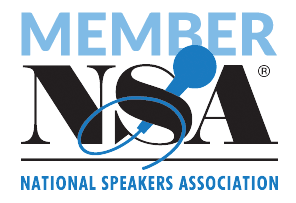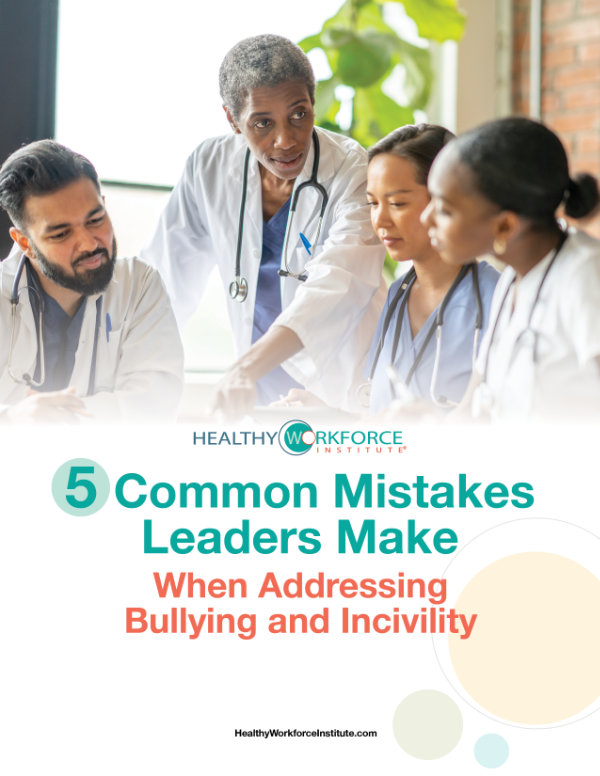 In a professional environment, like healthcare, you wouldn’t expect educated professionals to use vulgar language – but they do. Profanity in the workplace is one of the most common complaints we hear from our healthcare clients. In every organization we work with, we’re told that clinical and non-clinical people curse; some of them, like sailors and truck drivers (no offense)! And it’s not just the employees. The very same leaders who complain about their employee’s potty mouths, also admit (reluctantly) that they curse too.
In a professional environment, like healthcare, you wouldn’t expect educated professionals to use vulgar language – but they do. Profanity in the workplace is one of the most common complaints we hear from our healthcare clients. In every organization we work with, we’re told that clinical and non-clinical people curse; some of them, like sailors and truck drivers (no offense)! And it’s not just the employees. The very same leaders who complain about their employee’s potty mouths, also admit (reluctantly) that they curse too.
Examples of profanity in the workplace
One of the medical directors we started working with admitted that any time she gets frustrated, she’ll m***** f*** right there in front of her team. Apparently, she is well known for her “what the f***” response anytime something doesn’t go quite right. Her profanity isn’t directed at anyone else, it’s really her stress response that gets expressed in a barrage of “bleeps” any time she gets frustrated.
A new nurse asked an experienced co-worker for the pharmacy phone number who then replied,
“It’s 1-800- go f*** yourself honey.” And then laughed.
One of my nursing assistants when I was a manager, shouted to my nurse,
“My boyfriend knows what shuttle you take and will be waiting to beat the s*** out of you!”
She said that three times in my patient care hallways.
And finally, a nurse didn’t like the assignment she got from the charge nurse, she stomped down the patient care hallways yelling,
“I’m not taking this f****** assignment!”
Yep. Profanity in the workplace is a problem.
The two ways profanity/cursing/vulgar language shows up in healthcare
Cursing in Anger
Cursing in anger happens when an employee gets mad and then yells curse words or gets into an argument with a co-worker and spouts profanity while in a heightened emotional state.
Why is cursing in anger a problem?
When cursing in anger occurs, anyone within ear shot is affected, especially patients. When humans overhear badness, especially when it’s fraught with yelling, cursing, or threats, our brains immediately consider it a threat to our survival. We go into our fight or flight response, which affects our performance for the next few hours. If patients overhear the badness, it affects their outcomes.
When leaders ignore cursing, it could be considered a hostile work environment. Employees can say that vulgar language, especially when used in anger, ignored by their leaders may be a distraction and interfere with their work.
Bottom line is that cursing in anger harms patients and employees.
Cursing in Casual Conversations
And then there’s cursing in casual conversations. You know, during shift report, in the break room when people are telling a story, or just chit chatting. Some people just randomly drop the F bomb. They’re not angry, they’re just cursing in a casual conversation.
Let’s say you’re early for a meeting. As you wait for the chair of the meeting to arrive, a peer starts talking about their kids and the mischief they got into over the weekend. As they’re sharing the details, they drop a few F-bombs, S-bombs, etc. – not in anger; they’re actually laughing as they curse.
Why is cursing in casual conversations a problem?
What’s the big deal – right? Nobody is angry so what’s the harm? I guarantee someone in that room is offended by that language but might not be willing to speak up. It can create an uncomfortable experience for some people, which then in turn has a negative impact on their work and relationships.
Bottom line is that cursing in casual conversations is unprofessional and affects relationships.
What can you do to reduce profanity in the workplace?
If profanity has never been addressed in your department, you can’t just gather everyone together and say, “That’s it. From now on, no cursing.” Because for some people, cursing is a habit. What you must do is ease into a profanity free department using the following approach:
-
Start with cursing in anger
Because of the risk to patients and employees within earshot of profanity, start here. Make cursing in anger a “never event” that demands immediate attention on everyone’s part.
Let your team know that moving forward, cursing in anger is unacceptable – no matter what – and that you want everyone to intervene accordingly. Oh, make sure you explain why (fight or flight response, impact to patient outcomes, etc.).
When someone curses in anger, intervene by saying, “You’re cursing (and yelling) in a patient care area and need to stop right now.” Teach your teams to say this too.
Get our 8 Ways to Stop Unprofessional Conduct, which includes 31 scripts, by clicking here.
-
Then reduce cursing in casual conversations
We do this by letting our team know that we’re going to “work on it”. Especially if people are used to cursing as a way of communicating casually, it’s hard to just stop. However, you can ask that they refrain from any profanity in a patient care area or centralized workstation. Start there first, and then work on protecting your breakrooms. After all, a “breakroom” means…a break.
 According to an article written by Paul Falcone in SHRM, an effective approach to reducing foul language is to change your expectations and ask your team for help in fixing the issue. End with “Will you support me in that [reducing foul language at work]?”
According to an article written by Paul Falcone in SHRM, an effective approach to reducing foul language is to change your expectations and ask your team for help in fixing the issue. End with “Will you support me in that [reducing foul language at work]?”
One of our consulting clients got together as a team and decided to bring in a “swear jar”. Any time someone cursed, they had to put $.25 cents into the jar, which was then used to buy goodies for their break room.
Make it fun if you can!
Now that you know the negative impact profanity in the workplace has on your employees AND your patients, it’s up to you to act. Remember, start with cursing in anger and then start working on cursing in casual conversations. Before you know it, the new norm will be collegial conversations among professionals – not the brazen conversations typically overheard on “the road” or in a “boat”!
Enough! Eradicate Bullying & Incivility in Healthcare: Strategies for Front Line Leaders – Book














